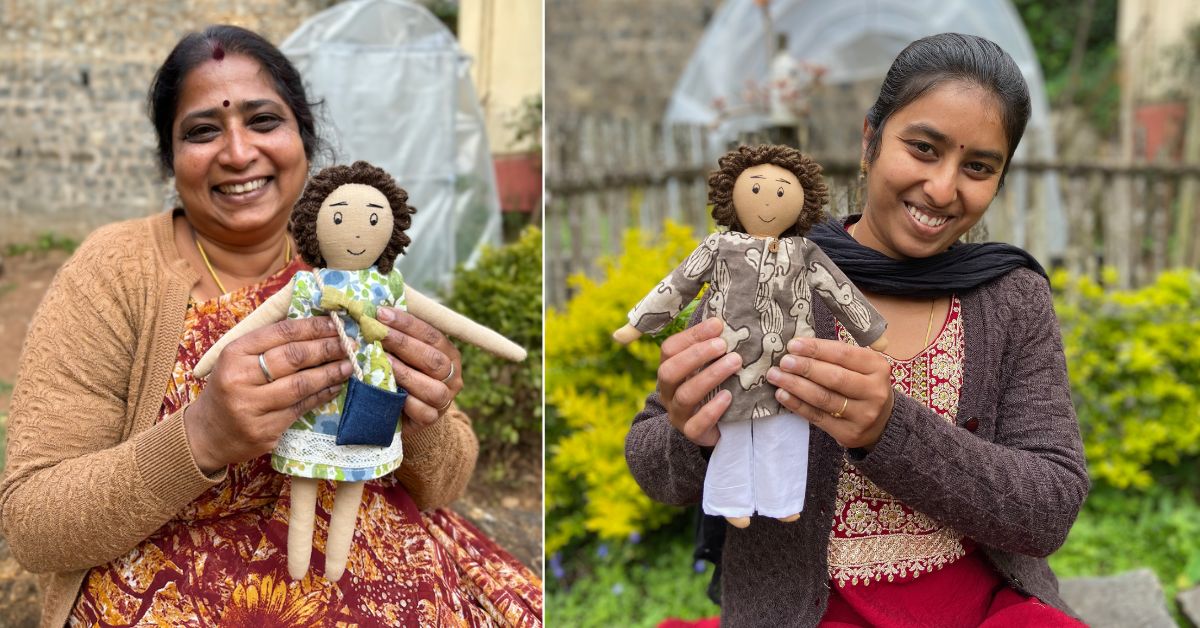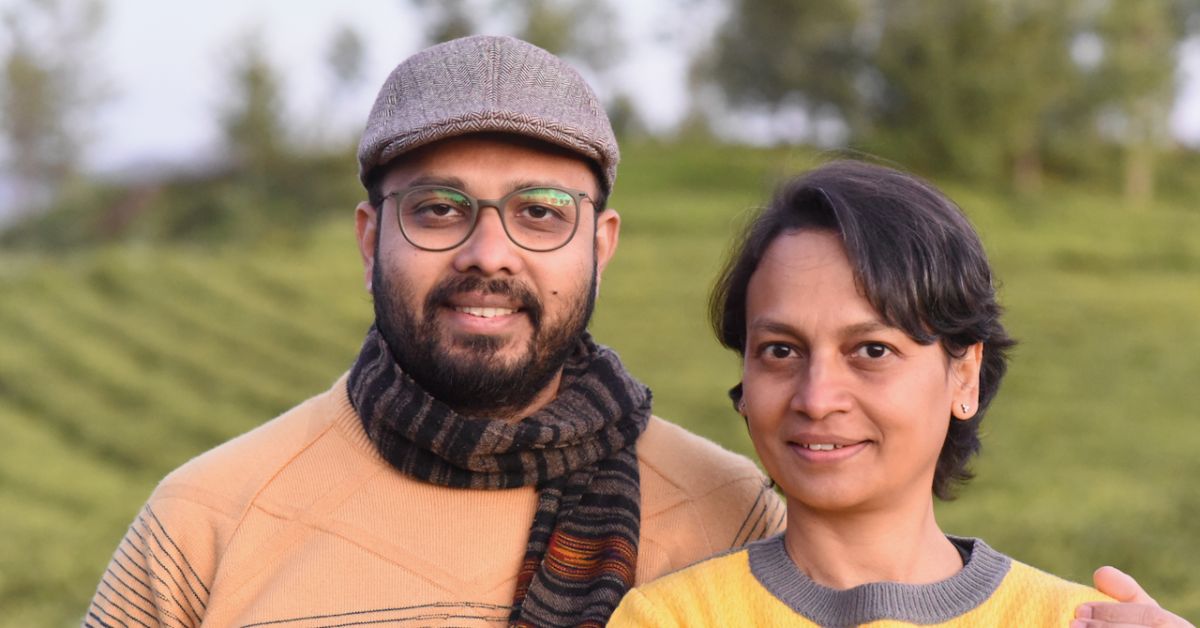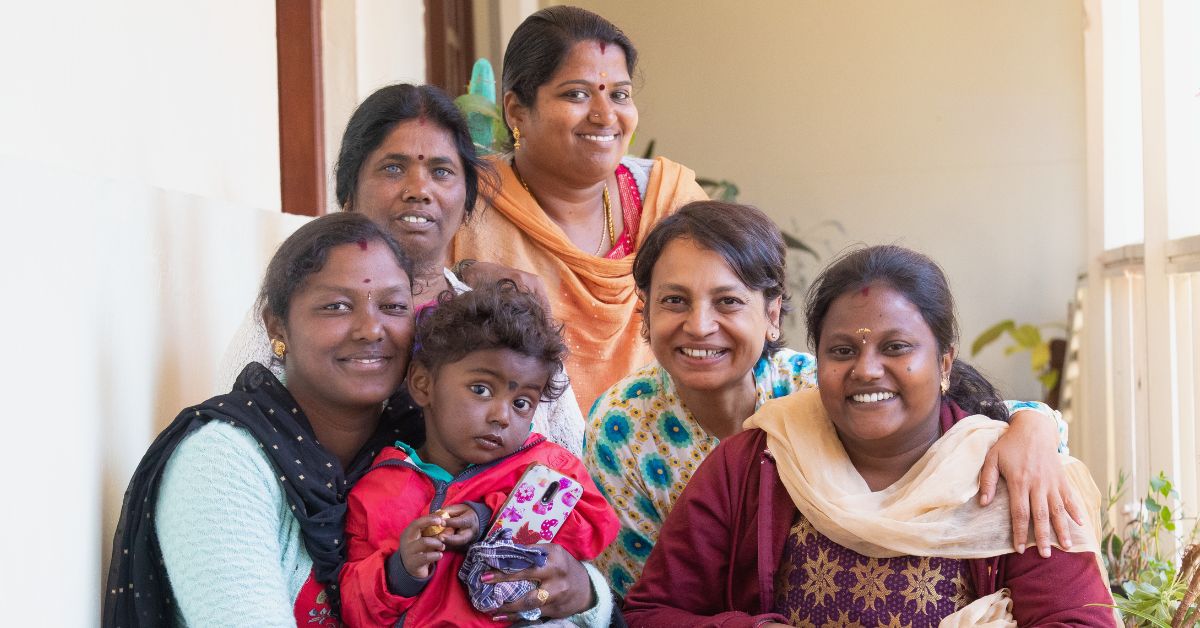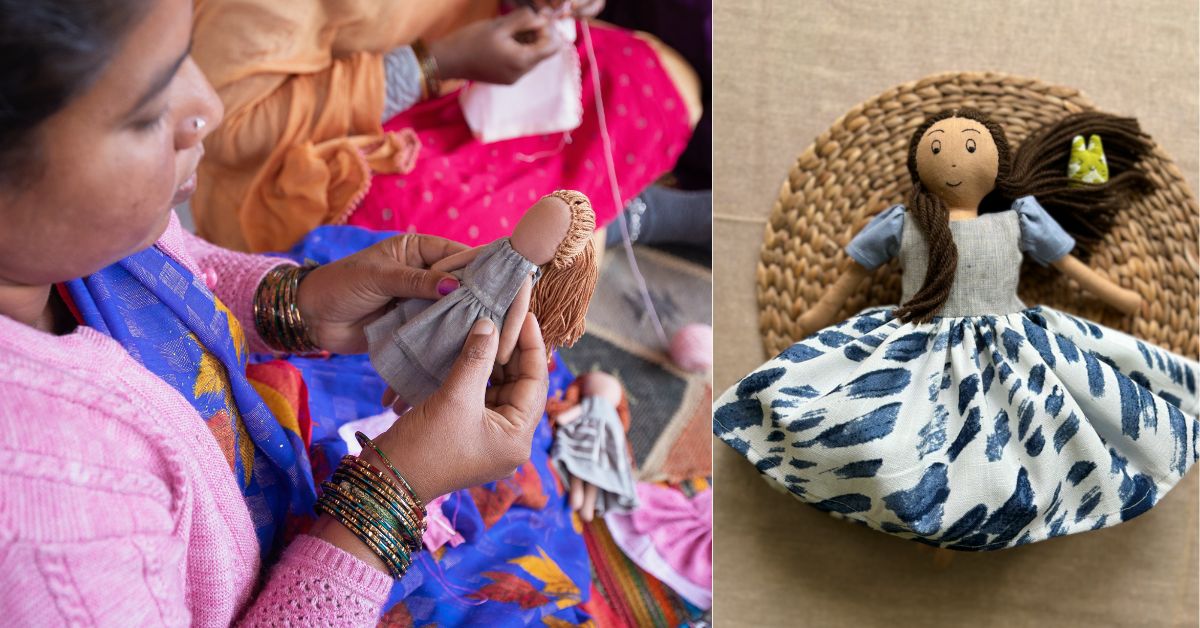Growing up in West Bengal as a young girl in the 80s, Sunita Ramegowda wanted something to cuddle which would remind her of her daadi’s (grandmother’s) warm hugs. Her daadi would then stitch old clothes or rags together to make a doll which Sunita would lovingly carry around with herself all day.
“I remember my grandmother used to sew the long fall cloth onto the hem of her sarees. That piece of cloth was sturdy and would not tear easily even if the saree itself would. She would then remove the fall and upcycle it into a doll for me,” she reminisces.
Sunita carried these memories all the way back to her startup, ‘The Good Gifts’, that manufacturers fabric dolls upcycled from pre-owned textile waste.
“All our grandmothers used to make dolls from old clothes but when plastic came in, people stopped this practice. We took this age-old concept of making rag dolls and gave it a contemporary look,” says Suhas Ramegowda, Sunita’s husband.

“We designed our dolls in such a way that the garments are changeable. These garments are very detailed and give a real experience to the child. With different skin tones and facial expressions, children look at dolls and dress them up like their ajja-ajji (grandparents), mama (maternal uncle) and more,” he adds.
Not only are these dolls good for kids but also for the planet, while providing an employment opportunity to tribal women artisans. With the startup, Sunita and Suhas have empowered 230 women from tribal communities of the Nilgiris in Tamil Nadu.
Interestingly, they have prevented 8,000 kg of textile waste from entering the landfills as well.
One home, two different lives
After their marriage, Suhas and Sunita settled in Bengaluru and worked in the corporate sector for at least 15 years.

“But something was missing from our lives. We were not content and didn’t find any purpose in the work that we did. So, Sunita and I decided to move to a rural setup. We were done with the hustle of city life and wanted to figure out what makes us happy,” he says.
In 2017, the couple moved to the picturesque Nilgiris mountains with an idea to live off grid, surrounded by nature. “We built our home with our own hands using mud andstarted growing our own food, harvesting water from mountain streams and harnessing solar energy for electricity,” he shares.
While the couple switched to a sustainable and minimalistic lifestyle, they observed and noted that the same lifestyle was a struggle for rural communities. “Although we lived in the same surroundings, our lives were so different and stable because of our savings. But livelihood was an everyday challenge for the tribal people living here,” says Suhas.
Sunita informs that agriculture was not the main occupation in the region and tourism also remained affected. “Other than tea picking, there was no other regular work for rural women. Every morning, they would leave their homes and kids behind to work in other villages,” she adds.
That’s when the couple decided to give back to the community, who were now their neighbours.

Taking body positive fabric dolls to kids
Nearly five years back in 2019, the duo established the Indian Yards Foundation, a social enterprise to improve the socio-economic status of tribal communities in Nilgiris through crafts.
Sunita explains how she has always been inclined towards craft-making. “Even when I was working, I always found time to embroider and crochet. I would research a lot on various crafts and learn how to make them from YouTube. This gave me the idea of putting women and craft-making together and seeing if we can build a solution around it,” she says.
Starting with patchwork quilts, macrame, and home decor products, the couple started upskilling tribal women.
“Through upskilling and capacity building, we tried to help women become entrepreneurs and not just workers in a factory. However, just training them was not sufficient. We needed market linkage and support to solve livelihood problems,” shares Suhas.

This need led to the formation of The Good Gift in early 2023. Serving as the marketing arm of the Indian Yards Foundation, the startup fosters economic empowerment of tribal women.
“We created a website to take the product to the market. Everything was flowing smoothly but we still had not reached our hero product. So, we experimented with multiple products and finally zeroed in on fabric dolls and toys,” says Sunita.
“There is a growing segment which is moving away from plastic, and parents do not want their children playing with plastic toys anymore as they are not only hazardous to the environment but also to our health,” she adds .
Keeping sustainability intrinsic to the brand, the couple strived to hand craft fabric dolls using upcycled textile waste. “Instead of buying new raw material, we wanted to be as sustainable as possible. In garment factories, there is a lot of waste post production and not all of the material is utilised. So, we retrieve off-cuts from the bedsheets and cushions, excess material, fabric with wrong prints from factories,” informs Sunita.
Meanwhile, the couple also focussed on keeping their fabric dolls body positive.
“Plastic Barbie dolls have created a certain beauty standard, for example an image of certain figure, pointy nose, and certain colour. This created wrong notions in children’s minds. We also want to change this concept. We promote body positivity, various colours and skin tones. After all, it is through these dolls that children learn about beauty standards,” she adds.
Within a year, the couple has been able to expand the work in B2B and made their presence across 60 offline stores in Chennai, Bengaluru, Goa, Ooty, and Coonor.
Every month, they sell 3,000 fabric dolls. Last financial year, they clocked in a revenue of Rs 75 lakh.
“We are glad that with this work, we are able to impart new skills and ensure monetary benefits for tribal women. The cycle is complete only when women start making money out of it, and do not practise craft just as a hobby,” she says.
“Today, most of our women have increased their monthly incomes from Rs 2,000 to Rs 8-10,000. Years back when we moved to the Nilgiris, we hadn’t hoped to bring this change. There is nothing more satisfying than it,” says Sunita.
Edited by Padmashree Pande. All photos: Suhas Ramegowda.
No comments:
Post a Comment